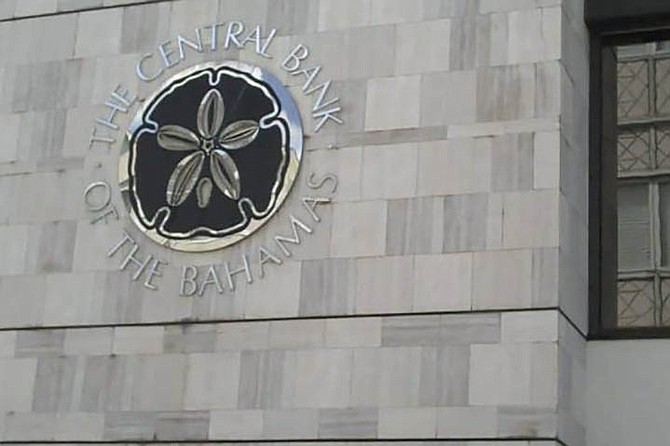By NEIL HARTNELL
Tribune Business Editor
nhartnell@tribunemedia.net
Almost two-thirds of Bahamian businesses say the fees charged by commercial banks need “major improvements”, according to the findings of a Central Bank survey.
The result, which will come as little surprise given the constant complaints raised by both private sector and consumers, was divulged in the regulator’s just-published Business Digital Payments Survey, which showed an increasing trend of companies moving towards electronic channels to conduct transactions.
The research, which focused largely on micro and small companies with annual turnover of $5m or less, said: “When asked to give their opinion on the level of changes or improvements needed in the current state of digital payments in the country, 64.3 percent of businesses said that fees charged by financial institutions required major improvements.
“Some 52.7 percent said major changes were needed with respect to potential to fraud, and 51.3 percent indicated that the security of technology required major improvements. Additionally, 46.4 percent said major improvements were needed with respect to convenience and volume of customer interest, and 43.4 percent noted that readiness of point-of-sale (POS) and receipting systems needed major changes.”
When it came to receiving monies, the Central Bank survey found that less than ten percent of business respondents received all their income in the form of cash. It added that there were signs that payments made via digital means increased in 2020, and there was greater interest from consumers in using such channels.
“As to accepted means of payments, cash was still the most widely embraced, with the least accepted instruments being in the emergent categories of cryptocurrencies and mobile wallets. In particular, only about 13.7 percent of entities accepted no form of cash payment, while two-thirds indicated that cash represented about of ten percent or more of their receipts,” the Central Bank report found.
“In the case of cheques, business-drawn instruments were more favoured than personal cheques, with some degree of acceptance by three-quarters of firms versus only 60 percent of firms that also accepted personal cheques.”
“Credit and debit cards were accepted among approximately 60 percent of firms,” the Central Bank added. “However the average share of revenues from credit and debit cards was greater than for either category of cheques, and only outpaced by funds received through electronic bank/wire transfers.
“In fact, wire transfers ranked second in importance to cash for firms that received at least 20 percent or more of their intake through this medium—about half of all businesses versus approximately 55 percent of all firms that average such levels for cash.
“On a weighted average basis, the revenue share represented by cash collection was estimated in the upper 20 percent to mid-30 percent range; a lower but slightly similar distribution was estimated for wired or transferred revenues, with credit and debit card potentially approaching about one-quarter of receipts; and cheque receipts accrued in the lower 20 percent range.”
As for consumers, the Central Bank’s survey found that 15 percent of respondents held gaming accounts with web shops. Some 71 percent of these account holders used them only for gaming, while another 15 percent treated them as a savings resource and 5 percent used them to transfer funds to family members.
“Gaming accounts held significantly low average balances, with the average of less than $50 maintained in about 72 percent of the accounts; between $50 and $100 in 12 percent of accounts; and with average balances in excess of $100 maintained in less than 7 percent of facilities,” the Central Bank said.
“Comparatively, estimates as of December 2020 are that 85 percent of Bahamian dollar accounts on the lower-end of the holdings spectrum averaged about $1,110 in funds, whereas the lower threshold for remaining bank deposits exceeds $10,000.”





Comments
bahamianson 4 years, 8 months ago
Need.major improvement? Are you tryimg to tell us nicely that the banks are a.bunch of crooks.they have us by the shkrt and curlys
SP 4 years, 8 months ago
If the Bahamas wasn't so damn inherently corrupt, it would be a simple matter of regulating banks to the rules they observe in home countries!
How the hell the banks get away with all the nonsense & criminal activity here is something to be seriously looked into.
Sign in to comment
OpenID